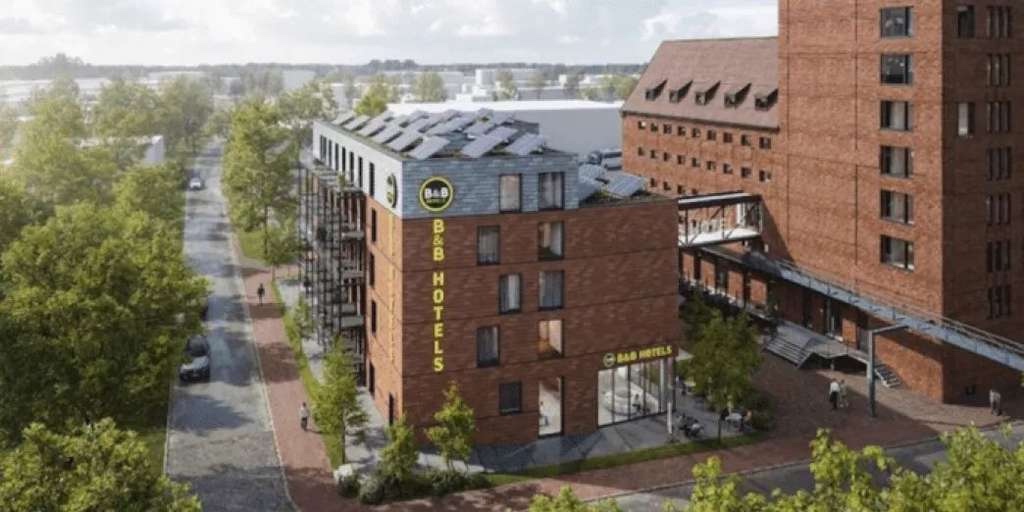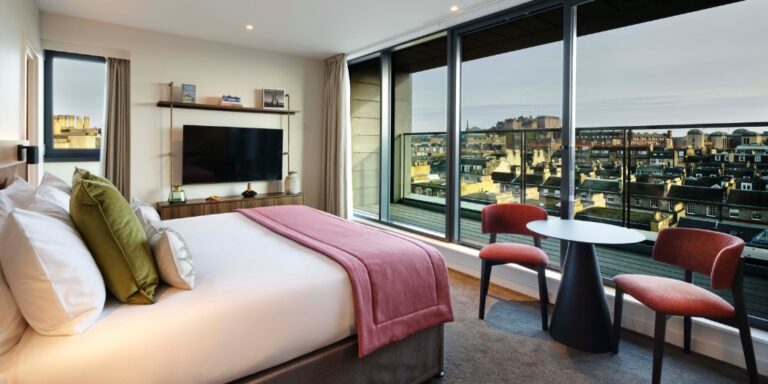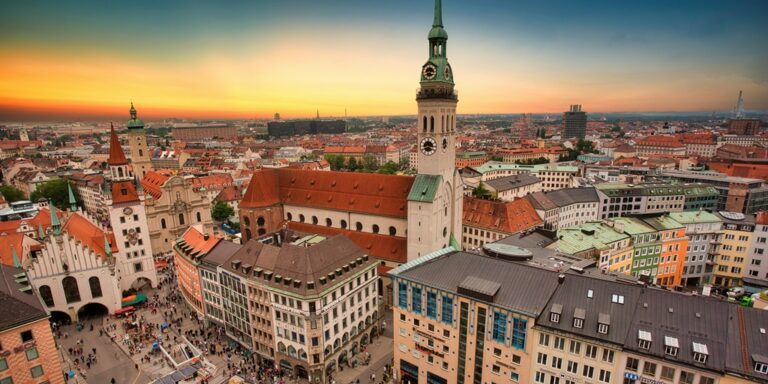Hotel brand B&B is building its first hotel using modular timber construction, as it seeks to embed sustainability into its developments.
The hotel in Neustadt in Holstein, Germany will use this modern method of construction alongside reuse of a listed historic building. This hybrid approach promises to deliver a highly sustainable result, minimising the creation of CO2 in its construction.
A growing shift in construction
B&B’s move reflects a growing trend among hotel operators and developers, who are looking to modern methods of construction (MMC) to help them with today’s construction challenges. By using factory built components, it is possible to create greener hotels, and have them delivered more quickly, with greater certainty over the cost of construction.
The new B&B hotel will be ready to open in autumn 2025, on a site close to the town’s railway station. It will have 100 bedrooms, in a combination of space within a historic agricultural warehouse, plus a new build block.
The new build element will have a traditional solid ground floor and stair core, while all of the upper floor elements, across four levels, will be made from prefabricated timber modules. These will be delivered by construction partner Timber One, based in Stuttgart, and they will be made from wood cut from sustainable German forests.
B&B notes that this route to delivery will reduce emissions, cut waste generated during construction, and provide a hotel that will have reduced running costs.
Among other hotel groups committed to modular building, CitizenM has long been a fan of prefabricated rooms, having guest rooms manufactured in a factory. The room units are then shipped to site, and craned into position.
Whitbread, too is deploying prefabrication as it rolls out a growing number of hotels in Germany. Working with construction partner Lechner Group, it is using precast ceiling and wall elements to create the structure of new hotels, made from reduced CO2 concrete. A Premier Inn in Eschborn is the first joint development using this approach, with up to 90% of the structure coming to site in component form, reducing build time by around six months.
In the UK, the Hampton by Hilton brand has used modular construction at two sites to date, working with architects Stride Treglown. The Hampton by Hilton at Bristol airport, and a Hampton in London Docklands both used prefabricated container-sized units, built in China by CIMC, for their main rooms.
A focus on sustainability
And CIMC is now branching out into the Middle East. There, the company has recently signed an agreement to build the Earth Hotel Riyadh, a three storey property with 86 rooms that will open in 2026. The construction time is expected to be half that of a similar project using traditional building methods.
Aside from the Neustadt project, B&B is working on a number of live projects, as it looks to grow the brand internationally. Across Germany, construction is also under way at Lippstadt, Mittenwald, Rastatt, Stralsund, Wertheim and Wurzburg.







